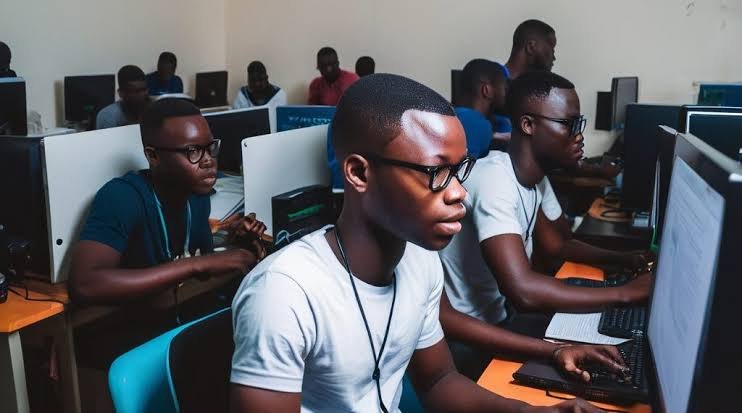Employers in Nigeria are demanding graduates equipped with essential skills like communication and problem-solving—abilities that remain conspicuously absent from the nation’s outdated curriculum. This systemic failure to align education with the demands of the modern job market has left the country grappling with an alarming unemployment rate among graduates, which stands at 80 percent, according to the Daily Independent.
With a large proportion of graduates unable to secure employment, the country is not only failing to harness the potential of its youth but also perpetuating a cycle of poverty. Fortunately, the government is waking up to this reality.
Last year, the Nigerian government launched a 3MTT program, alternatively called 3 million technical talents, aiming to equip three million people with technical skills by 2025. While the program intends to bridge the gap between education and labour market in Nigeria, Dr. Bosun Tijani, the minister of communications, innovation, and digital economy, said the plan also targets the country to become a net exporter of talent and grow the digital economy.
Unfortunately, a program like the 3MTT requires pre-requisite knowledge and infrastructure. For instance, one of the program’s community managers, when speaking with TechCabal, said some participants signed up for the program hoping to receive a free laptop or even money since it is government-sponsored. And some do not even understand the courses they are signing up for, like those who signed up for data analysis courses because they thought it would teach them the mobile data business.
Failure or success of the 3MTT program will define Nigeria’s economic trajectory and the future of its youth as it holds the potential to transform the country’s workforce by equipping millions with essential technical skills, bridging the gap between education and employment.
Tragedy of Ill-equipped Graduates
The Nigerian Institute of Social and Economic Research (NISER) notes that many graduates are ill-equipped to compete in an increasingly globalised job market. Obviously, the crux of the problem lies in an education system that emphasises rote learning and theoretical knowledge over practical, job-ready skills, leaving graduates ill-equipped to navigate the complexities of the modern job market.
A report by the British Council found that the education system in Nigeria is far from being ready to address the massive unemployment problems facing the country, due to its inadequate teaching and learning facilities. The report says the West African country “needs to develop its formal technical and vocational education system, giving it prestige and making it attractive to young people, in order to produce graduates with the skills needed to operate labour-intensive industries and their value chains. The education provided by tertiary institutions should be re-sharpened to equip students with skills, such as analytical, critical thinking, entrepreneurial skills, problem-solving and communication skills.”
Professor Oluwatoyin Ogundipe, Vice-Chancellor of the University of Lagos, put it succinctly: “Nigerian universities need to focus on developing skills that are relevant to the modern job market.”
While the gap between academia and the labour industry in Nigeria continues to widen, other countries offer clear examples of how to bridge this gap. Some countries are making strides in this area. One is South Africa’s “work-integrated learning” policy that aims to ensure graduates have the necessary skills to succeed in the job market. This policy has been instrumental in providing graduates with the practical skills required.
A study by the South African Qualifications Authority (SAQA) found that 83 percent of graduates who participated in work-integrated learning programs were employed within six months of graduation, compared to 55 percent of graduates who did not participate in such programs. The benefits also extend to their academics. Research by the Council on Higher Education (CHE) in South Africa found that students who participated in the work-integrated learning programs had a higher success rate, with 75 percent of participants achieving a pass rate, compared to 55 percent of non-participants.
With a success story like South Africa’s, Nigeria is expected to soon benefit from its 3MTT initiative that successfully enrolled 31,270 fellows for its first cohort. However, to fully achieve its aims, the government must take bold action to address the skills and knowledge gap. This includes investing more in vocational training programs, revising university curricula to provide work-integrated learning opportunities, and promoting entrepreneurship and innovation.
Nigeria’s future depends on its ability to develop a skilled and competitive workforce. By prioritising skills development and vocational training, graduates can be equipped with the skills required to succeed in the modern job market.
Gbenga Oyelakin Samson is a PhD student at Indiana University, Bloomington, USA, a Fulbright alumnus and cultural exchange ambassador. He serves as a remote mentor at Teach for Nigeria and a 2024 Journalism for Liberty Fellow at the Liberalist Centre.













